Photographs: Ajay Verma/Reuters Rajorshi Sanyal in Mumbai
“We must accept finite disappointment, but never lose infinite hope,” Martin Luther King, Jr. had famously said. If you listen deeply the stories of our great country this year, you can indeed listen to the desperate cries of many of our fellow citizens -- cries of the riot victims of Muzzafarnagar, the duped innocents of Bengal’s Saradha chit fund scam, the helpless victims of the Uttarakhand disaster, the orphans of the Ratangarh temple stampede, the widows of Thane building collapse, the ‘criminalised’ millions of homosexuals, and many more. We wish pain could be wiped like tears.
However, if you are still listening, you’ll also hear some loud cheers, not just because they are echoes of extraordinary accomplishments, but also because they resonate with tales of countless struggles. These are the stories that cannot be branded as mere historical graduations, because these are the stories that have been purged out of pain. That's why these stories have made our country very strong -- as they have streamlined hope into the veins of billions.
Recollecting some stories that have taken our great country a step-forward in 2013:
Please …
The 'Nirbhaya' law
Image: A demonstrator holds a placard during an anti-rape protest in New DelhiPhotographs: Adnan Abidi/Reuters
The horrific rape and consequent murder of a 23-year-old paramedical student in a bus in the national capital in December last year had brought together our diverse country like never before. And while young students were on the roads braving water cannons and police lathis in Delhi, most others in rest of the country were angrily murmuring to themselves, “Enough is enough. We want justice!”
Predictably, there were still routine politicians -- the purveyors of the ‘if-its-rape-the-girl-must-be-squarely-blamed’ line -- but surprisingly, the angry media and the angrier India gave them what they deserved in no time.
Also Read: Don't Forgive! Don't Forget!
But more importantly, the debate over the shocking state of women’s security in the country was not sidelined even for a moment, and although there was no remarkable decrease in the number of rape cases, they were being reported with a new surge and people were firm that they won’t loosen up till ‘Nirbhaya’ -- one of the many names that were used to salute the Delhi braveheart -- gets justice and concrete steps were taken to make amends to ensure safety of women.
Result, on April 3, 2013, President Pranab Mukherjee gave his assent to Criminal Law (Amendment) Bill-2013 which provided for life term and even death sentence for rape convicts besides stringent punishments form offences like acid attacks, stalking and voyeurism.
The law, that was first passed by the Lok Sabha and then by the Rajya Sabha, stated that an offender can be sentenced to rigorous imprisonment for a term which shall not be less than 20 years, but which may extend to life, meaning imprisonment for the remainder of the convict's natural life and with a fine.
The law, for the first time, defined stalking and voyeurism as non-bailable offences if repeated for a second time. Perpetrators of acid attacks will attract a 10-year jail, the law stated.
Although the country could not save its ‘Nirbhaya’, her struggle re-ignited a dark dungeon within each one of us which had held us captives for way too long.
Please …
Cyclone Phailin: Saving millions
Image: A girl runs home after receiving a free breakfast at the Cyclone Phailin-hit Gopalpur village, in Ganjam district of Odisha.Photographs: Adnan Abidi/Reuters
Millions of people in coastal Odisha and Andhra Pradesh were busy making their final preparations for the annual Durga Puja/Dusshera festivities when MeT department came up with a warning -- that of an impending “very severe” tropical cyclone Phailin. Immediately people were reminded of the horrors of a super cyclone that killed more than 10,000 lives in 1999 in Odisha alone.
However, reminiscences of the horror DID NOT stop the state authorities from taking emergency measures. As such, more than a million people were evacuated -- sometimes with great difficulty -- to safety, and army, air force and rescue personnel were roped in like never before.
Also Read: How WE defeated cyclone Phailin and saved thousands
As Cyclone Phailin made its landfall near the coast of Ganjam in Odisha on October 13, with strong winds of up to 220 kmph ripping through the coasts generating gigantic waves, snapping electric poles, destroying hutments, felling trees -- lakhs of rescue personnel were working closely with the authorities to ensure minimum damage.
And although 60 people were killed and thousands of hectares of crops were devastated, the damage was nothing when compared to the horrors of 1999.
It’s no surprise that the Odisha State Disaster Management Authority was conferred the International Conference on Human Logistics Award 2013 for proving that miracles can be achieved through patience and presence of mind.
Please …
Surge to the Red Planet
Image: India's Polar Satellite Launch Vehicle, carrying the Mars orbiter, lifts off from the Satish Dhawan Space Centre in Sriharikota.Photographs: Babu/Reuters
India on November 5 began its historic journey to Mars with the successful launch of the Mars Orbiter Mission or Mangalyaan. ISRO’s Rs 450-crore mission was launched from Dr Satish Dhawan Space Centre in Sriharikota, as the national space agency joined the elite club of just four agencies in the world which dared to travel to the Red Planet.
The first Trajectory Correction Maneuvre of India’s maiden Mars mission was successfully carried out on December 11 by ISRO scientists on the spacecraft. Earlier, the Mars orbiter had crossed another major milestone by venturing out of Earth’s sphere of influence for the first time in an attempt to reach the Red Planet’s orbit.
Also Read: ISRO's Mars Mission blasts off: Launch termed successful
After travelling a distance of 680 million km for 280 days, the orbiter is expected to reach the Martian trajectory in September 2014.
The primary objective of the Mars Orbiter Mission is to showcase India's rocket launch systems, spacecraft-building and operations capabilities. The secondary objective is to explore Mars' surface features, morphology, mineralogy and Martian atmosphere using indigenous scientific instruments.
The fact that most of the Mars missions across the globe have failed, and no country has witnessed a successful mission in its first attempt, makes Mangalyaan a really significant operation, something that has made the country very proud.
Please …
Music for a troubled paradise
Image: Renowned conductor Zubin Mehta gestures before performing at the Ehasas-e-Kashmir concert at Shalimar Garden on the outskirts of Srinagar.Photographs: Danish Ismail/Reuters
Unfortunately, gunshots and helpless cries are all that Kashmir has been listening to in the past decades. A pleasant melodious break, however, came on September 7 when world-renowned conductor Zubin Mehta and his team enthralled audiences in Srinagar with some of the best western classical compositions.
In a unique setting in the 400-year-old Mughal Gardens with its magnificent chinars, Mehta and his Bavarian State Orchestra played its full cast of works of Ludwig Van Beethoven, Franz Joseph Haydn and Pyotr Ilyich Tchaikovsky in front of an invited audience of 1,500 guests.
Also Read: Music, beauty, history: It is here, it is here
The concert kicked off with the maestro leading the orchestra in concert with Abhay Sopori's troupe with traditional Kashmiri instruments.
Jammu and Kashmir Chief Minister Omar Abdullah started his inaugural speech by quoting the famous couplet by Amir Khusrau “that if there is heaven on earth, it is here, it is here. Shalimar Bagh once again comes alive with the sound of music.”
The concert, 'Ehsaas-e-Kashmir' (Feel of Kashmir), also assumed political overtones following opposition by separatists and civil society, which saw it as an attempt to present a picture of peace in Kashmir which had witnessed so much bloodshed in recent decades. As such, the Kashmiri civil society held a parallel concert, 'Haqeeqat-e-Kashmir' (Reality of Kashmir) at the Srinagar Municipal Park, not far away from the Shalimar Garden, “for the real people of Kashmir, and not just the high-profile”.
Please …
The broom to clean up politics
Image: Supporters of Aam Aadmi Party, hold brooms, the party's symbol, as they celebrate their performance in the Delhi assembly electionsPhotographs: Anindito Mukherjee/Reuters
It’s been some time that the voiceless common man has been at the receiving end of escalating corruption, political looting and skyrocketing inflation; but 2013 witnessed the rise of the victimised, the marginalised common man with a hope to ‘clean up the dirty system’ under the umbrella of the Aam Aadmi Party.
With brooms in hands, people across the national capital united under the leadership of Arvind Kejriwal and did the impossible task: trounced three-time chief minister Sheila Dikshit in her own backyard and also prevented opposition Bharatiya Janata Party from delivering what could easily have been a spectacular performance.
On a high after showcasing one of the best election debuts in the history of India, the AAP is now upbeat to make its presence felt in the upcoming Lok Sabha polls.
Also Read: Aam Admi Party: Politics cannot ask for more hope
However, the fact that the AAP did not take up the charge of governing Delhi and fulfilling its promises despite getting offers of support from both the Congress and BJP, coupled with apprehensions over its capability to do well on the national stage, have raised questions marks in certain sections.
Nevertheless, the fact that the defenceless common man -- who is forced to bear the brunt of politicians’ lust for money and is used to believe that promises are meant to be broken -- could actually gather strength and challenge the two most powerful parties in the country, is indeed commendable.
And as far as AAP goes, only time will prove whether the front is actually different from the lot which it desires to expose. But the hope which it has already given to the burdened common man is exceptional.
Please …
The right to say 'No'
Image: Negative voting will send a clear signal to political parties, the CJI said while giving out the rulingPhotographs: Parth Sanyal/Reuters
The sensitive voter’s biggest dilemma was answered this year as the Supreme Court recognised the right of voters to reject all candidates, seen as a key reform ahead of the 2014 general election.
On September 27, a bench headed by Chief Justice P Sathasivam asked the Election Commission to change electronic voting machine ballots to give voters a choice of "none of the above".
Also Read: Right to Reject candidates a GREAT step forward. Here's why
"Democracy is all about choices and voters will be empowered by this right of negative voting," Sathasivam said, ruling on a petition by the non-profit People's Union for Civil Liberties.
“Negative voting will send a clear signal to political parties and candidates as to what the voters think about them,” he added.
And the winds of change have already started blowing in a vibrant democracy like ours: the first-time introduced None of the Above (NOTA) option was used by more than 1.5 million voters in the recently-concluded elections to five state assemblies. Although their percentage appears miniscule (1.4 per cent out of the total 11.53 crore voters), the NOTA made significant impact, especially in further dampening the poll prospects of the Congress party.
Please …
Fighting all odds to transform dream to reality
Image: Jayakumar and Prema in front of the autorickshaw that Jayakumar drives.Photographs: Prasanna D Zore/Rediff.com
And this one is special: 24-year-old Prema Jayakumar, daughter of Jayakumar Perumal who drives an autorickshaw to sustain his family in the maximum city, brought smiles to many when she topped the All-India Chartered Accounts examination this year.
Prema, who scored 607 marks out of 800 in one of India’s toughest competitive examinations, is grateful to the sacrifices made by her parents to ensure she makes her dream come true.
Read Prema’s incredible story here!
Please …
The story China can't afford to ignore
Image: The surface-to-surface Agni-V missile is launched from the Wheeler Island off the coast of OdishaPhotographs: Reuters
On September 15, India conducted a second test flight of its indigenously developed nuclear-capable Agni-V long-range surface-to-surface ballistic missile, which has a strike range of more than 5000 km, from the Wheeler Island off Odisha coast.
Also Read: Beijing now within India's range with Agni-V
The launch, conducted in the presence of defence scientists and experts, was the second developmental trial of the long-range missile while the first test was conducted on 19 April, 2012 which was a total success.
Unlike other missiles of indigenously built Agni series, Agni-V is the most advanced version having some new technologies incorporated with it in terms of navigation and guidance, warhead and engine.
The successful test launch significantly boosted India’s military standing.


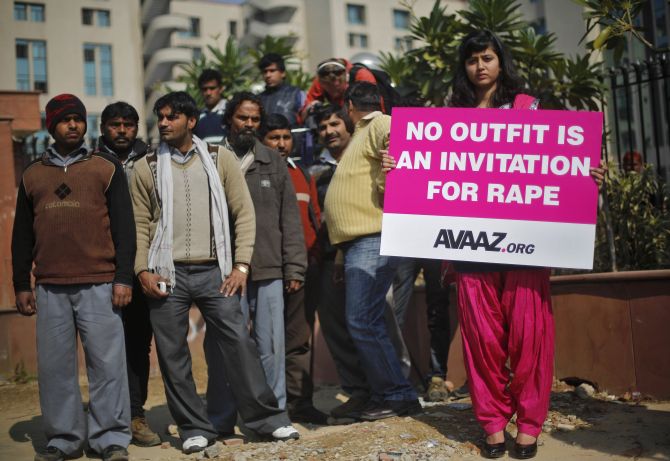
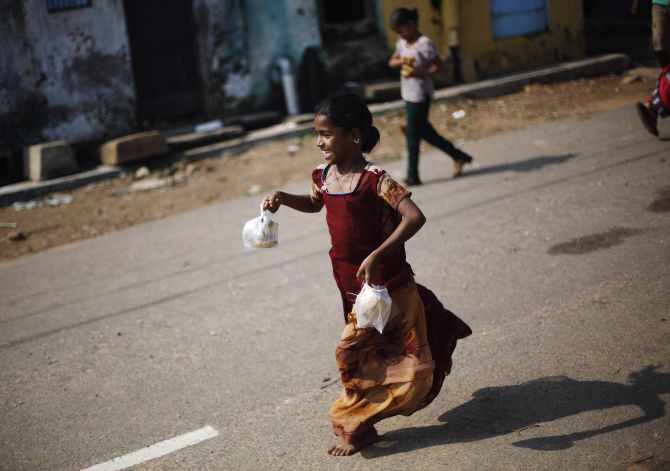


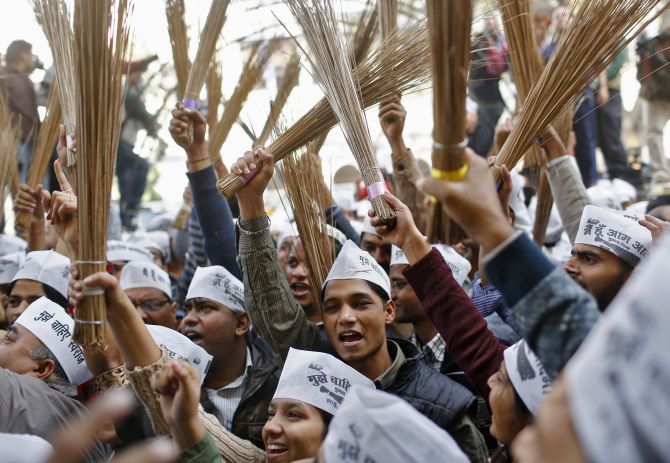
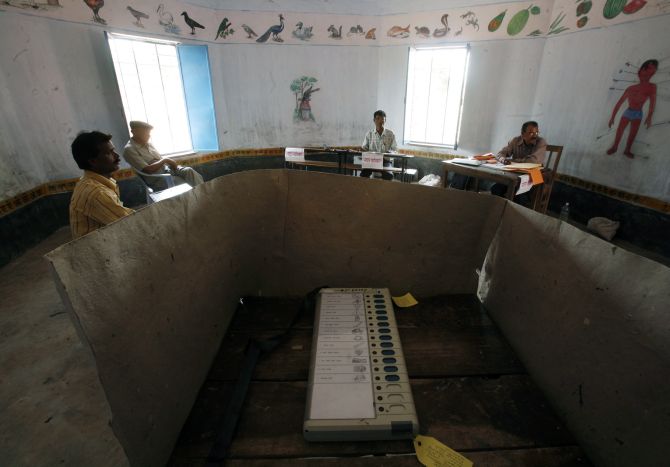
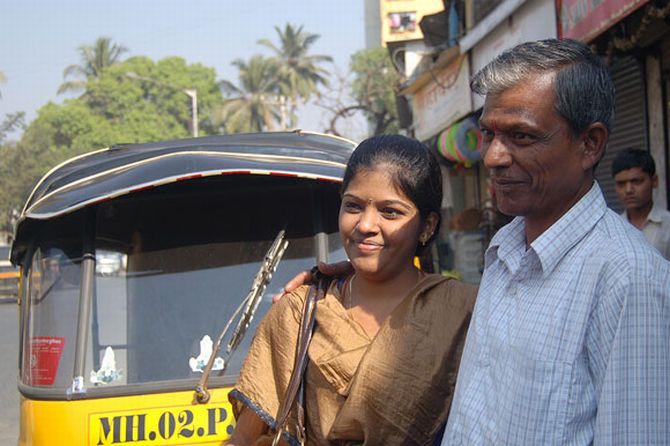
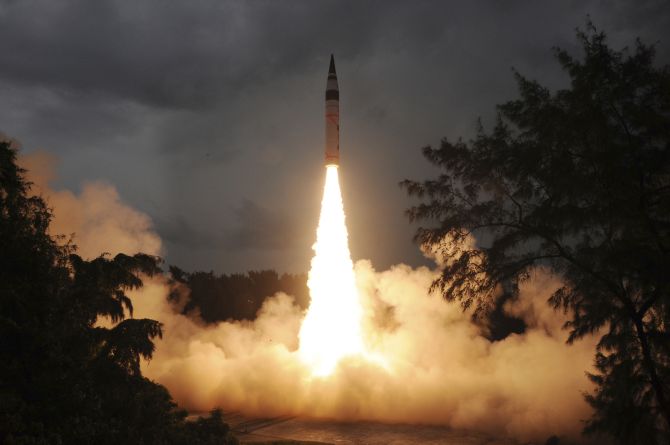
article